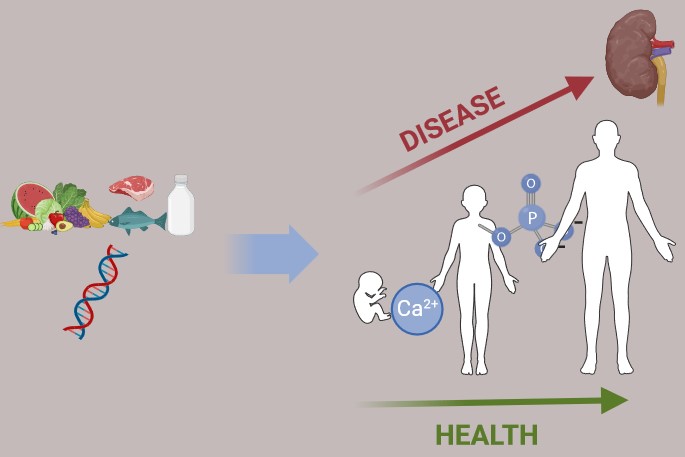Navigation auf uzh.ch
Navigation auf uzh.ch
Isabel Rubio-Aliaga (see short CV (PDF, 105 KB) , ORCID)

Background: Serum phosphate and calcium levels are tightly regulated by various hormones, namely parathyroid hormone (PTH), 1,25(OH)2-dihydroxyvitamin D and fibroblast growth factor 23 (FGF23). Various diseases (mainly genetic) and nutritional patterns affect mineral homeostasis, and are associated with cardiovascular and renal diseases

We are interested in how nutritional habits and mutations in selected genes impact on mineral metabolism and the impact on healthy aging. Moreover, we aim to understand if aging affects mineral metabolism.
Past projects included the use of mouse models to investigate the risk of high FGF23 levels on cardiovascular disease, the relation between mineral homeostasis and the Jak/Stat pathway and the impact of a chronic high phosphate diet on aging. We learned that solely high FGF23 does not induce left ventricular hypertrophy and that constitutive activation of Jak1 leads to massive production of FGF23 in the liver, causes growth impairment and skeletal alterations. Furthermore, we investigated the impact of a continuously high phosphate diet from adulthood to elderhood on renal function and macronutrient utilization in mice. Our studies show that a chronic phosphate intake in mice does not cause major renal alterations, but is detrimental for bone health and causes changes in body composition and macronutrient utilization.
Topics: Our running projects comprise:
Collaborations: Our current collaborators are the German Mouse Clinic at the Helmholtz Zentrum in Munich (Germany), the Department of Medicine at the University of Oviedo (Spain), the Institut for Medical Microbiology at the University of Zurich, the SKSS from the Swiss National Centre of Competence in Research (NCCR) Kidney Control of Homeostasis (Kidney.CH), and the Nutrition, Biomarkers & Health Research Group at the University College Dublin (Ireland).